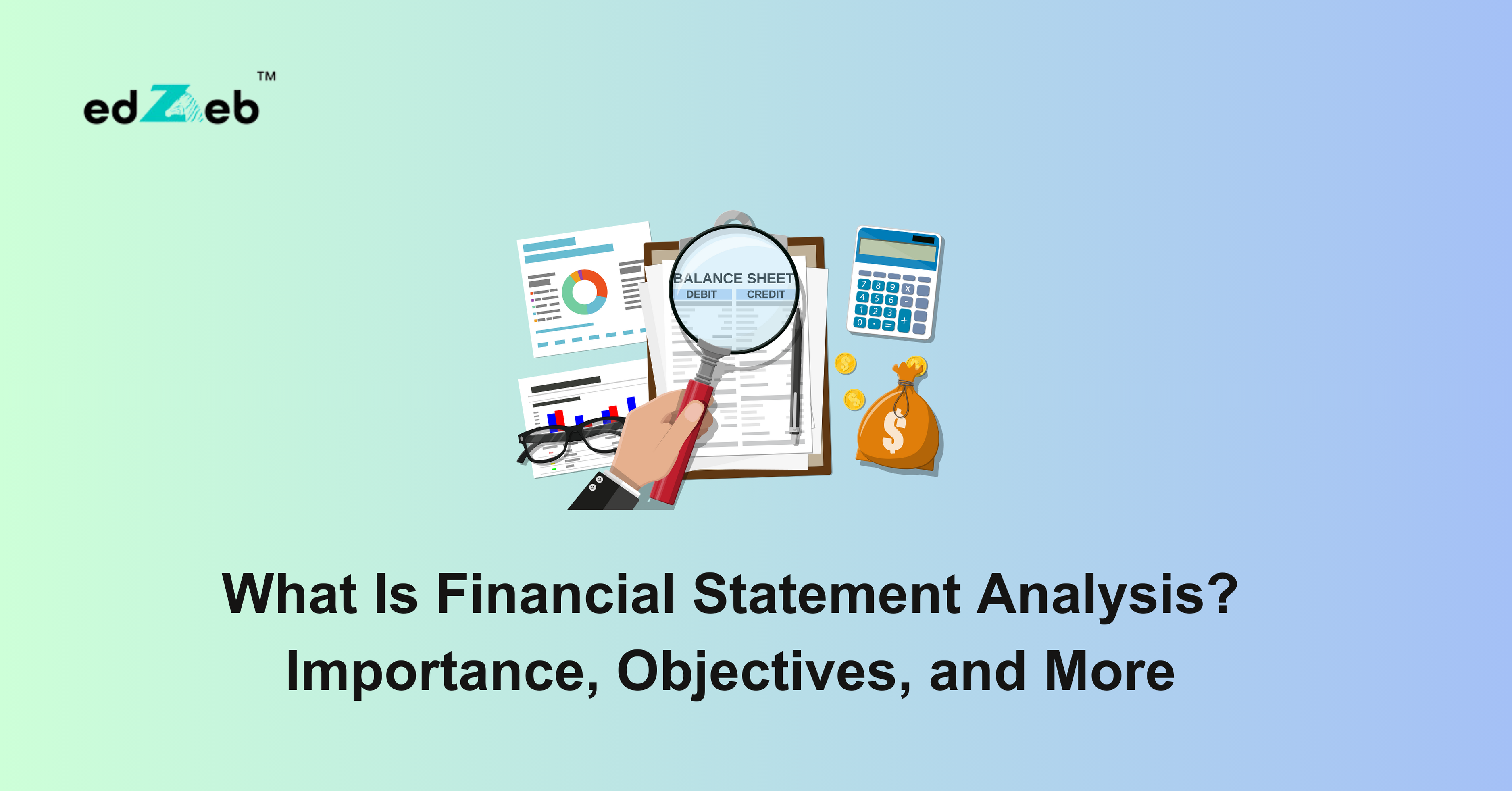
Want to make a career in finance, but finding it hard to find the best job or don’t know from where to start? Don’t worry! We’ve got you covered.
The finance industry is growing by leaps and bounds, offering numerous job opportunities. It is a highly competitive field, so with the right education, experience, and skill set, one can either start a career in finance or transition into it. Pursuing certification courses in finance can enhance your qualifications and make you a more attractive candidate to employers. Building a career in finance industry can be exciting and financially lucrative, with top executives earning six or seven figures in wages and incentives. Financial services are prominent in various fields like investment banking, financial analysis, and corporate finance.
This guide will thoroughly explain how to kick-start your finance career, what you’ll need to build a solid career in finance industry, and the highest-paying career options in the finance industry to hold substantial value in an organization.
Table of Contents:
How to Kickstart Your Career in Finance?
Starting a career offers diverse career opportunities in finance industry ranging from investment banking and financial planning to corporate finance and risk management. With so many finance career options, finding the best career path in finance can feel overwhelming. However, success in the workplace requires alot of hard work, effort, and perseverance. So, to begin a career in the financial industry, follow these steps:

Get A Bachelor’s Degree
A bachelor’s degree in finance, accounting, economics, or a closely related discipline, such as a BBA or BCom, is necessary to pursue the best career path in finance. It will lay a solid foundation in accounting procedures, economic concepts, and financial principles. Obtaining a graduate degree in finance, such as an MBA or MCom, can increase your prospects even further.
Take Finance And Accounting Based Skill Building Courses
Getting professional certifications in finance is a great way of demonstrating your knowledge and dedication to the industry. If you’re seeking the best finance certifications to enhance your credentials, you may want to consider obtaining certifications such as Chartered Financial Analyst (CFA), Association of Chartered Certified Accountants (ACCA), Financial Modelling (FM), Certified Management Accountant (CMA), Chartered Institute of Management Accountants (CIMA), and many more. Obtaining these qualifications may boost your earning potential and open doors to varied career opportunities in finance at higher levels.
Find Challenging Internships
An internship offers a chance to learn about the financial industry and gain insight into your career progression. Completing multiple internships in different areas can help you focus on your interests and career path. Internships also help build a professional network, which can be beneficial when applying for positions. Sharing your internship experience with hiring managers or updating your resume can also help secure a job.
Start An Entry-Level Job
Start with an entry-level role if you want to make the best finance career for yourself. Apply for the position you are most interested in and get promoted even if the post fails to be explicitly related to finance. For instance, you might look into working as an office assistant for your neighborhood credit union or as a generalist in human resources for a large financial company.
Attend Career Fairs And Alumni Events
Attending finance career fairs can also result in significant finance career opportunities. You can speak with representatives from different companies about their businesses and there are chances that they will provide you with a job offer if you meet their standards at a career fair. These people occasionally accept resumes, and some even hold informal interviews while the event is going on. So, it will help you take your finance career options seriously to find the best career path in finance.
The Skills You’ll Need To Pursue A Finance Career
Building a career in finance needs a strong foundation of key skills like analytical thinking and effective communication. Mastering these abilities is crucial for success in this competitive industry to excel in a finance career.
Analytical Thinking
Analytical thinking is a crucial skill in areas like data analysis, risk management, financial analysis, strategic planning, and risk analysis. It helps professionals understand and interpret situations to come up with smart solutions. As a finance professional, analytical thinking ensures intelligent and practical solutions to various problems. It is also crucial for a career in finance as it makes an individual an asset to the company.
Accounting Skills
Accounting skills are essential for managing and recording financial transactions efficiently and accurately. They are crucial for making the best finance career in the industry, as companies often require them for financial reporting, modeling, and analysis. A basic understanding of accounting skills can help build a successful career in finance industry.
Cash Flow Management
Cash flow management is a crucial skill in the finance industry, as it helps businesses monitor, optimize, and analyze their cash receipts after deducting expenses. It helps businesses stay in check, focus on growth, and avoid financial loss. This skill is vital as it provides detailed information about a company’s financial transactions, enabling the development of profitable strategies and preventing financial loss. Studies show that most businesses fail due to a lack of cash flow management.
Financial Modeling
Financial modeling is a skill that involves creating a mathematical model to represent a financial situation using abstract methods. It helps estimate business valuations and compare companies. Professionals skilled in financial modeling are essential for finance careers, as they help determine budgets and project costs. Completing a Financial Modelling course enhances these skills, providing advanced techniques for building and analyzing financial models. Companies expect candidates to possess this skill for senior job profiles, as it is crucial for them to find the best finance career opportunities.
Data Management
Data management is a crucial skill for managing, storing, maintaining, and gathering company data. It aids in making informed decisions and enabling data analysis. While not a prerequisite for finance professionals, having a solid foundation in data management can significantly enhance their work efficiency, ensuring smooth access and use of data for financial analysis.
Financial Management
Financial management involves the strategic use of a business’s funds through controlling, planning, organizing, and directing its activities. It involves using various management concepts to manage financial resources. This skill is crucial for making smart investments and financial decisions and is essential for a strong career in finance, including roles like portfolio manager, investment banker, and financial advisor.
Qualifications to Build a Solid Finance Career
Some qualifications that align with your field of study add value to your previously gained knowledge and also enhance your skill set, so here is a list of qualifications that can help you build a strong foundation for your finance career.
Association of Chartered Certified Accountant (ACCA)
ACCA, the Association of Chartered Certified Accountants, is the world’s oldest and most credible qualification for creating strategic accounting infrastructure. Established in 1904, it is the world’s largest and oldest accounting association. With 117 offices and 500,000 members in 180 countries, ACCA offers the Chartered Certified Accountant designation after completing the ACCA course. This qualification prepares individuals for various financial and management aspects of businesses, preparing them for work in any corner of the world as qualified professionals.
Certified Financial Analyst (CFA)
A Certified Financial Analyst (CFA) is a professional title that demonstrates in-depth training in investment strategy and high-level money management. It requires expertise in financial research, portfolio management, investment consulting, risk analysis, and risk management. Completing a CFA Course provides comprehensive preparation for the rigorous CFA exams, enhancing knowledge and skills crucial for financial analysis. CFAs are often required for positions like chief investment officer, credit analysis, corporate accounting, auditing, or financial planning for high net-worth individuals. The CFA Institute awards this certification, considered the highest distinction in the investment management profession.
Financial Modeling (FM)
Financial modeling is a tool used to represent a company’s operations in numbers, used for decision-making purposes. It helps executives estimate costs and project profits for new projects, while financial analysts explain the impact of events on a company’s stock. These models are also used in strategic planning to test scenarios, calculate project costs, decide on budgets, and allocate resources. Examples of financial models include discounted cash flow analysis, sensitivity analysis, and in-depth appraisal. They are essential for estimating business valuations, comparing businesses to industry peers, and determining budgets.
Certified Management Accountant (CMA)
Certified management accountant (CMA) is an accounting designation that demonstrates expertise in financial accounting and strategic management. It enhances financial accounting proficiency by adding management skills for strategic business decisions based on financial data. CMAs often prepare reports and analyses that go beyond generally accepted accounting principles (GAAP), providing specific insights to corporate decision-makers.
CFP
The global certification CFP/CIP equips you to handle a range of financial industry responsibilities. A variety of financial principles, including mutual funds, taxes, insurance, and more, are covered in the CFP/CIP course. Upon earning your CFP/CIP, you’ll be regarded as a great asset by businesses and play a crucial role in the finance industry.
Highest Paying Career Options In Finance
Gaining experience and skills in the finance industry can lead to high-paying positions with greater responsibilities and growth opportunities.
Now, we will explore the highest paying career options in finance, highlighting the qualifications, skills, and career paths that can lead to substantial financial rewards.
Private Equity Associate
A senior specialist who is crucial to portfolio management and investment decisions in a private equity firm with an average annual salary of INR 12.0 Lakhs.
Hedge Fund Manager
Oversees a hedge fund and chooses investments to meet the goals of the fund. The average salary for Hedge Fund Manager is 17 Lacs per year in the India.
Financial Risk Manager
Financial Risk Manager is responsible to identify threats to an organization’s resources, ability to make money, or success. The average yearly compensation for a risk manager in India is ₹12.1, with a salary range of ₹3.0 to ₹30.5 Lacs.
Chief Risk Officer
CRO have a critical eye on identifying, evaluating, and eliminating business and operational risks that can prove hazardous to the business. They earn a yearly compensation of 34 Lacs per annum on an average.
Economist
Economists collect and evaluate data, study market trends, and research economic issues having an earning potential of 17.7 Lacs per annum on an average.
Financial Examiners
Financial Examiners research, collect data, and analyze information to ensure company compliance with regulations and assess the intersection of finance and law, with an average annual salary of 8 Lacs per annum.
Conclusion
Starting a finance career can be a transformative and rewarding journey. As you navigate this exciting field, it’s essential to equip yourself with the right education, skills, and experiences to stand out in a competitive market. By understanding the differences between top qualifications like CFA and MBA, gaining relevant skills through internships, and leveraging opportunities for professional development, you can set a solid foundation for success. Remember, building a successful finance career requires continuous learning and adaptation to industry trends. Whether you aspire to become a hedge fund manager, a financial risk manager, or an economist, the finance industry offers a multitude of pathways to achieve your career goals. Stay committed, remain curious, and embrace the challenges ahead, as they will ultimately lead to a fulfilling and prosperous career in finance.
FAQs
What Are The Top 3 Skills For A Financial Analyst?
Strong quantitative skills, exceptional problem-solving abilities, logical proficiency, and above-average communication skills are necessary for a successful career as a financial analyst. In addition to analyzing data, financial analysts have to present their results to their supervisors in an accessible, brief, and convincing manner.
What Is The Eligibility To Pursue CFA?
The program offers flexible entry points for students aspiring to build a finance and accounting career, requiring a bachelor's program completion, 2nd-year CFA level I exam, and 4,000 hours of work experience for non-graduates, and 23 months or less exam preparation before graduation month.
What Is The Highest Paying Finance Job?
There are many job opportunities for CFA professionals and some of the highest-paying job designations you can apply for include finance director, investment banker, chief finance officer, compliance officer, chief risk officer, and more.
What Is Finance In MBA?
Students can access a multitude of financial options with an MBA in Finance. Students in this course gain knowledge on how to evaluate corporate reports, predict market trends, manage investment portfolios, optimize stock value, and strike a balance between risk and profit.









